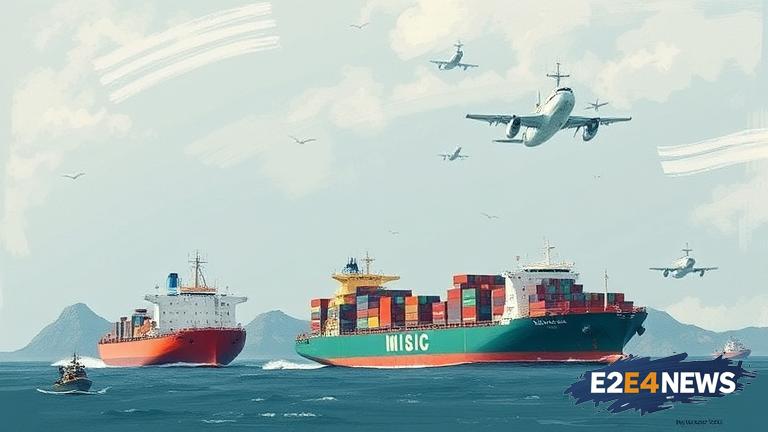The United States has taken a significant step in its efforts to counter Iran’s nuclear program by imposing sanctions on a major shipping empire with ties to the country’s leaders. The move is aimed at disrupting the flow of goods and resources that could be used to support Tehran’s nuclear ambitions. The sanctions target key figures and entities involved in the shipping empire, including top officials and companies. The US Treasury Department’s Office of Foreign Assets Control (OFAC) has added the individuals and entities to its Specially Designated Nationals (SDN) list, effectively freezing their assets and prohibiting American companies from doing business with them. The sanctions are part of a broader effort by the US to pressure Iran into abandoning its nuclear program and complying with international norms. The shipping empire in question has been accused of providing support to Iran’s Islamic Revolutionary Guard Corps (IRGC), which has been designated as a terrorist organization by the US. The IRGC has been involved in a range of activities, including the development of ballistic missiles and the support of militant groups in the region. The sanctions are likely to have a significant impact on Iran’s economy, which is already struggling under the weight of existing sanctions. The US has been working to build a coalition of countries to support its efforts to pressure Iran, and the latest sanctions are seen as a key part of this effort. The sanctions have been welcomed by Israel and other countries in the region, which have long been concerned about the threat posed by Iran’s nuclear program. However, the move has been criticized by some as an overly aggressive step that could escalate tensions in the region. The US has made it clear that it is willing to take further action if necessary to prevent Iran from developing a nuclear weapon. The sanctions are also seen as a response to Iran’s recent actions, including the seizure of a British-flagged tanker in the Strait of Hormuz. The incident has raised concerns about the safety of shipping in the region and the potential for further escalation. The US has been working to build a coalition of countries to support its efforts to secure the Strait of Hormuz and protect shipping in the region. The sanctions are part of a broader effort by the US to counter Iran’s malign activities in the region, including its support for militant groups and its development of ballistic missiles. The US has also been working to build a coalition of countries to support its efforts to promote stability and security in the region. The sanctions have been imposed under the Comprehensive Iran Sanctions, Accountability, and Divestment Act (CISADA), which provides the US with a range of tools to pressure Iran into complying with international norms. The US has made it clear that it is willing to take further action if necessary to prevent Iran from developing a nuclear weapon and to counter its malign activities in the region. The sanctions are seen as a significant step in the US effort to pressure Iran, and they are likely to have a major impact on the country’s economy and its ability to support its nuclear program. The US has also been working to build a coalition of countries to support its efforts to promote democracy and human rights in Iran. The sanctions are part of a broader effort by the US to promote stability and security in the region, and they are seen as a key part of this effort. The US has made it clear that it is willing to take further action if necessary to prevent Iran from developing a nuclear weapon and to counter its malign activities in the region.
